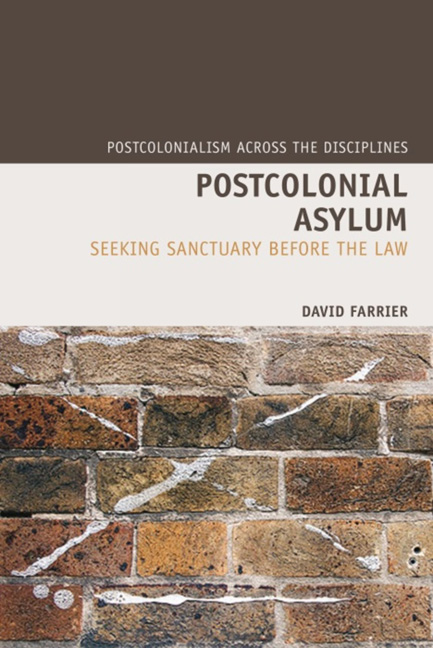1 - Nothing Outside the Law
Summary
How do you stay open to business and closed to people? Easy. First you expand the perimeter. Then you lock down.
Naomi KleinThe colonization of the in-between
In ‘Reflections on Exile’, Edward Said insists on a distinction between the prominence of exile as a modernist trope, and the current ‘age of the refugee, the displaced person, mass immigration’. The difference is principally one of scale; but it is also marked by advances in the possibilities of violence and imperial territorial ambitions such that now ‘exile cannot be made to serve notions of humanism’. Rather, the asylum seeker is a trope of the infrahuman. Said's compelling reminder of the devastation that can accompany displacement is an important counterpoint to the postcolonial emphasis on diaspoetics, but it presupposes a division between the early twentieth-century exile and the contemporary refugee (or asylum seeker) that occludes the heritage of colonial infrahumanity in the contemporary camp dispositif. In this chapter I will examine two key strategies of sovereign power in relation to asylum seekers: sovereignty's appropriation of the interstitial tactics advocated by postcolonial diaspoetics and the presuppositional strategies by which sovereign law presents itself as always anterior in its relation to life. Both, I argue, are key features of the operation of the camp dispositifand have their roots in the tactics of imperialism. First I will demonstrate how the emphasis on extra-territorial processing in the UK and Australia at the turn of the twenty-first century indicates sovereignty's contemporary facility with processes of deterritorialization as a means of consolidating territorial authority. I will then trace the colonial heritage of this deployment of the rule of the exception through readings of the work of Achille Mbembe, J. M. Coetzee's colonial parable, Waiting for the Barbariansand, finally, the illegal detention and deportation of Australian citizens Vivian Solen- Young and Cornelia Rau in Australia in 2001 and 2005.
In order to read asylum experiences in light of a non-thematizing politics that can offer a genuinely hopeful sense of a coming community, it is essential to consider the operations that work againstthe production of asylum seeker voices.
- Type
- Chapter
- Information
- Postcolonial AsylumSeeking Sanctuary Before the Law, pp. 24 - 56Publisher: Liverpool University PressPrint publication year: 2011



